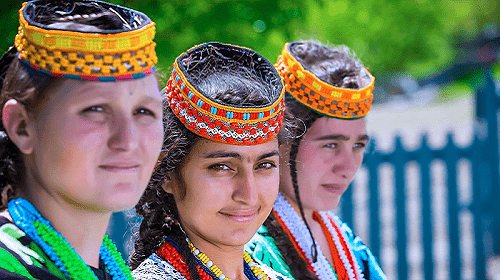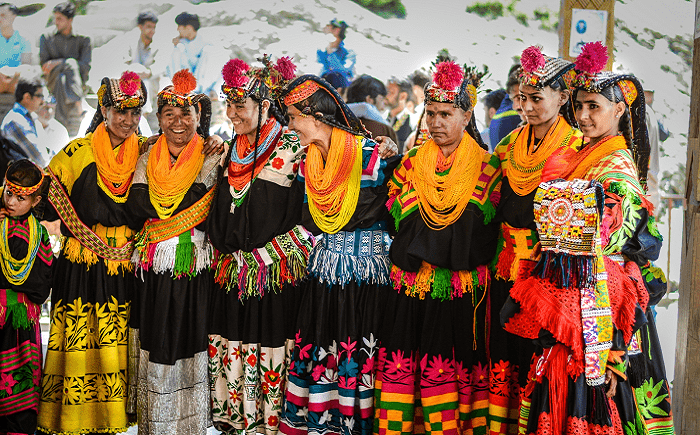Environmental Changes and Unbridled Tourism: Threat to Aboriginal Communities of Pakistan
Nestled in the remote and breathtaking landscapes of Chitral District in Pakistan's Khyber Pakhtunkhwa Province, the Kalash Tribe stands as one of the oldest and most distinctive indigenous communities in South Asia. With their vibrant culture, colorful dresses, and harmonious coexistence with the rugged environment, the Kalash people have preserved their unique identity for centuries. However, in recent times, this ancient heritage, along with several other aboriginal tribes in Pakistan and Afghanistan, faces grave threats from global weather changes, environmental degradation, unchecked tourism, and other factors. This article sheds light on the challenges confronting these remarkable comm

Diverse Aboriginal Tribes of Pakistan
Pakistan is home to several aboriginal tribes, each boasting its own distinct cultural practices, languages, and dialects. In addition to the Kalash Tribe, communities like the Burusho in Hunza, Balti in Skardu, and the Brokpa in Gilgit-Baltistan exemplify the richness of indigenous heritage in the region. These tribes have upheld their customs, beliefs, and traditional ways of life, providing a glimpse into the ancient history of the subcontinent.
Unique Culture and Dresses
The customs and rituals of these aboriginal tribes are an inseparable part of their identity. The Kalash Tribe, for instance, is renowned for its vibrant festivals like Chilimjusht and Uchal, where the community celebrates their harvest and welcomes the change of seasons with dance, music, and rituals. Their colorful dresses adorned with intricate embroidery and beadwork reflect the exuberance of their culture, drawing attention from around the world.

Languages and Dialects
Diverse linguistic traditions thrive within these tribes. The Kalash people speak the Kalasha language, a unique Indo-Aryan dialect that sets them apart from the surrounding regions. Similarly, the Burusho language, also known as Burushaski, remains an enigma as it is unrelated to any major language family. Preserving these languages is crucial to safeguarding the ancestral knowledge and wisdom passed down through generations.
Challenges and Threats
Despite their resilience, Pakistan's aboriginal tribes confront an array of challenges that threaten their cultural integrity. One of the most pressing concerns is climate change, which brings erratic weather patterns, unpredictable rainfall, and melting glaciers, disrupting their traditional agricultural practices and livelihoods. Environmental degradation, often caused by tourism and unsustainable development, damages their sacred sites, natural habitats, and the delicate balance of their ecosystems.
Unbridled Tourism and Cultural Intrusion
The increasing popularity of these unique cultures has attracted tourists from far and wide. While tourism can promote cultural exchange and economic opportunities, uncontrolled influx and cultural insensitivity can lead to the intrusion into the tribes' lives. Sacred rituals may be disrupted, and the traditional way of living could be exploited for commercial gain. Striking a balance between tourism and cultural preservation is paramount for the sustainable development of these communities.
Conclusion
The aboriginal tribes of Pakistan and Afghanistan serve as living repositories of ancient knowledge, customs, and practices. Preserving their unique heritage is not only vital for their own identity and survival but also enriches the global cultural diversity. As guardians of our shared human heritage, it is incumbent upon us to respect, protect, and celebrate the rich tapestry of these remarkable indigenous communities, ensuring that their wisdom and way of life endure for generations to come.
